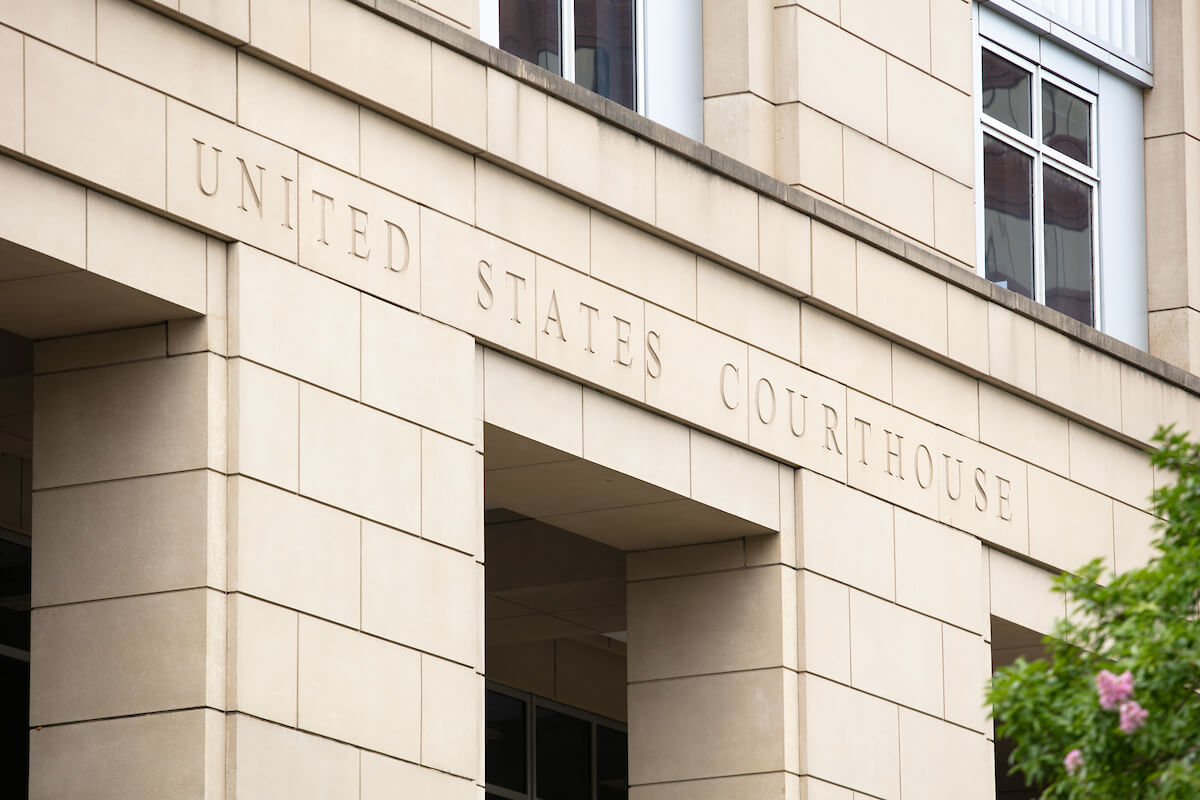By Graham Moomaw
(Virginia Mercury) – A federal judge gave a greenlight this week to a novel legal argument challenging Virginia’s longstanding felon disenfranchisement policy based on limits imposed on the state when the Civil War ended.
The lawsuit is focused on the 1870 Virginia Readmission Act, a federal law that allowed the former Confederate state to rejoin the U.S. Congress. As a condition for regaining elected representatives in the federal government, the law states that the Virginia Constitution cannot be used to deprive anyone of voting rights “except as a punishment for such crimes that are now felonies at common law.” At the time, common law felonies included “murder, manslaughter, arson, burglary, robbery, rape, sodomy, mayhem and larceny,” according to filings in the case.
By now stripping voting rights for all felonies instead of a particular set of crimes, the lawsuit brought by the American Civil Liberties Union of Virginia and other groups alleges, the state has fallen out of compliance with the Reconstruction-era law.
Voting rights and social justice groups have fought for years to scale back the scope of Virginia’s felon voting policy, which many advocates say disproportionately affects Black communities because of broader disparities in the criminal justice system. Under the state’s current system, people with felony convictions can ask to have their voting rights restored by the governor, but governors have broad leeway to be as lenient or as strict as they wish in granting or denying those requests.
In his initial opinion on the case, U.S. Eastern District Court Judge John A. Gibney Jr. indicated that argument had enough legal merit to survive the state’s attempts to have the case thrown out. Rejecting the state’s assertion that federal courts shouldn’t intervene in what’s effectively a Virginia political matter, Gibney ruled that the case “plausibly presents” the possibility that Virginia officials are violating federal law.
Though the judge dismissed some aspects of the case, the ACLU of Virginia hailed the ruling as a victory for their side.
“Virginia may no longer be a Confederate state, but the provision of our constitution that was specifically put in place to suppress the voting rights of newly enfranchised Black citizens after the Civil War is still oppressing Virginians today,” Vishal Agraharkar, a lawyer with the ACLU of Virginia, said in a news release. “Virginia is still living in the past, but by allowing our case to proceed today, the court demonstrated that it’s never too late to work for justice.”
The ACLU is working on the case with the WilmerHale law firm and a voting rights group called Protect Democracy. The plaintiffs are Virginians with felony convictions who have tried to have their voting rights restored by Gov. Glenn Yougkin without success.
Gibney removed a nonprofit group called Bridging the Gap from the case after ruling a general interest in helping former prisoners reenter society wasn’t enough to give the organization legal standing to sue. The judge also dismissed several other legal theories in the case, finding that the Virginia Readmission Act didn’t create affirmative rights for Virginia voters and concluding felon disenfranchisement isn’t a “punishment” as defined in the Eighth Amendment.
The judge declined to dismiss Youngkin and Secretary of the Commonwealth Kelly Gee, who oversees felon rights restorations for the Youngkin administration, as defendants in the suit. The state had argued the governor and his team don’t have a strong enough connection to the challenged policy to be included in the litigation.
“But under Virginia’s voting rights restoration scheme,” Gibney wrote, “these defendants may enforce the permanent disenfranchisement of certain individuals.”



